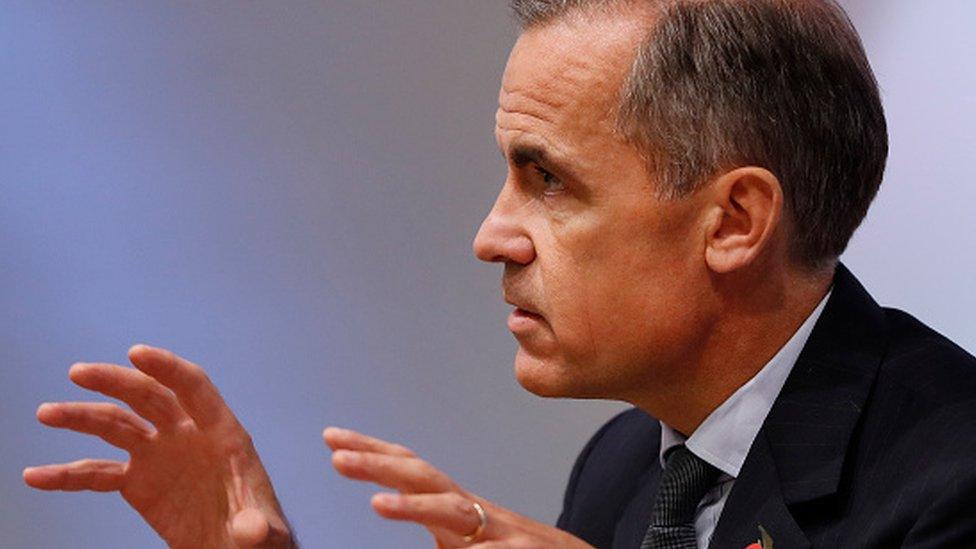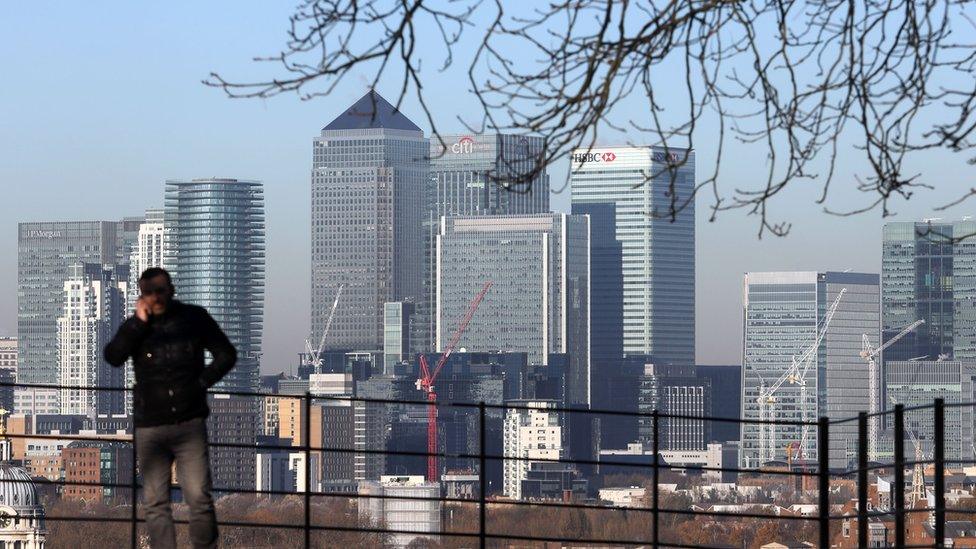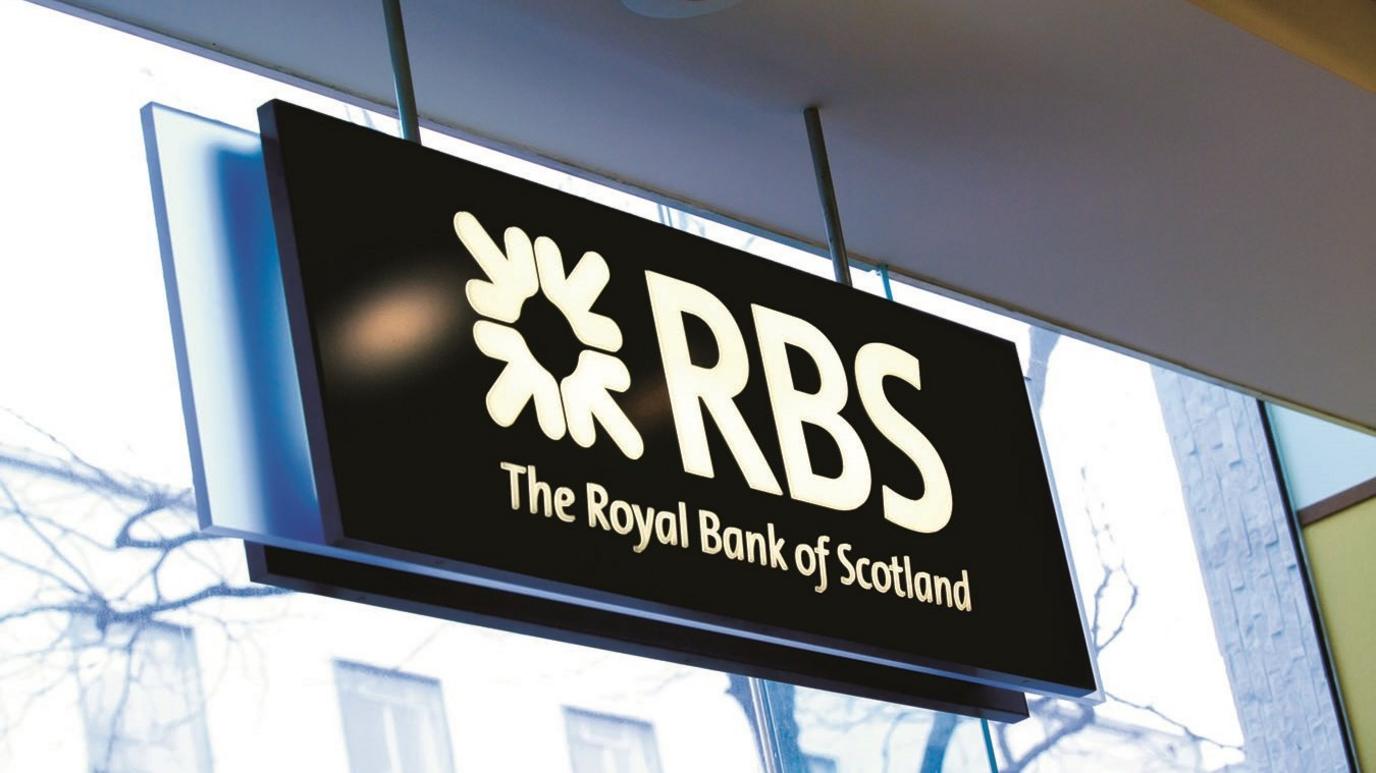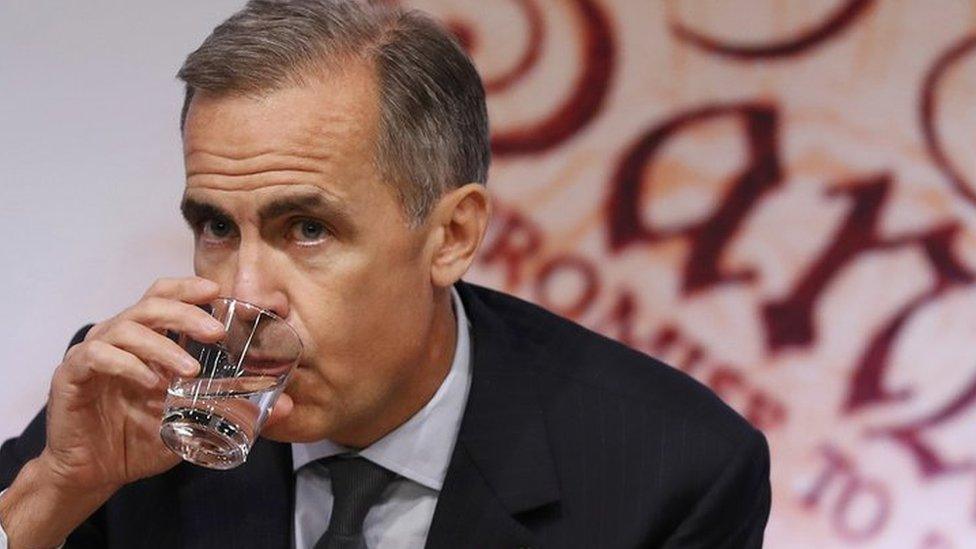Bank governor Mark Carney warns on household debt
- Published
- comments

The governor of the Bank of England, Mark Carney, has given a warning about the high level of debt in UK households.
In particular he said that consumers were borrowing more on their credit cards and other unsecured debt.
Figures from the Bank this week showed that credit card lending is at a record level, up by £571m in the last month.
Overall unsecured debt - which includes overdrafts - is rising at its fastest pace for 11 years.
"We are going to remain vigilant around the issue, because we have seen this shift," he told a press conference at the Bank.
The Bank's Stability Report, external showed that the overall ratio of household debt to income was 133% in the second quarter of 2016.
The Bank said that was high by historical standards, although it was not as high as in the financial crisis.
"It's the early phase of re-leveraging, following a long period of improvement of the position," said Mr Carney.
'Uncertain' housing market
For that reason he said the rules on risky mortgage lending would remain as they have been for the last two years.
In June 2014 lenders were told they could not lend any more than 15% of their loan book to people borrowing more than 4.5 times their annual income - so-called riskier mortgages.
Lenders also have to apply an affordability test to anyone wanting to take out a mortgage.
As part of that, lenders have to assess whether a home-owner could still afford the mortgage if interest rates rose by 3% at any time in the first five years of their loan.
One man's debt woes: Chris borrowed a £3,600 logbook loan but ended up having to pay back £12,100.
"This will help ensure that underwriting standards don't slip from responsible to reckless as they have during past periods of consumption-led growth," said Mr Carney.
In its report, the Bank also noted that house prices are now, on average, 4.5 times those of average incomes, a ratio which is high by historical standards.
The outlook for the housing market was "highly uncertain", it said.
Buy to Let
In general the outlook for UK financial stability after the Brexit vote "remains challenging", said the Bank's report.
It said stability was dependent on an orderly exit from the European Union, while it would take time to clarify the UK's new relationship with the EU.
Otherwise the greatest risks to UK financial stability are slowing growth in China and the eurozone, the report said.
UK banks are particularly exposed to events in Europe.
They provide more than half of debt and equity issuance by continental firms, and account for more than three quarters of foreign exchange and derivatives activity in the EU, it noted.

British banks are heavily exposed to firms in the European Union
"If these UK-based firms have to adjust their activities in a short time frame, there could be a greater risk of disruption to services provided to the European real economy, some of which could spill back to the UK economy through trade and financial linkages," the Bank said.
However, Mr Carney concluded that overall the financial system had proved resilient.
"The UK financial system has stood up well, dampening rather than amplifying volatility in financial markets," he said.
"Households and businesses have, as a result, been able to focus on what they should: whether a new home is right for their families or whether a new investment would help them better serve their clients."
The Bank said it would also continue to monitor the buy-to-let market, an area it has previously been concerned about.
While buy-to-let transactions have slowed in recent months, it said there was no evidence of a widespread sell-off by investors.
- Published30 November 2016

- Published30 November 2016

- Published30 November 2016

- Published27 November 2016
